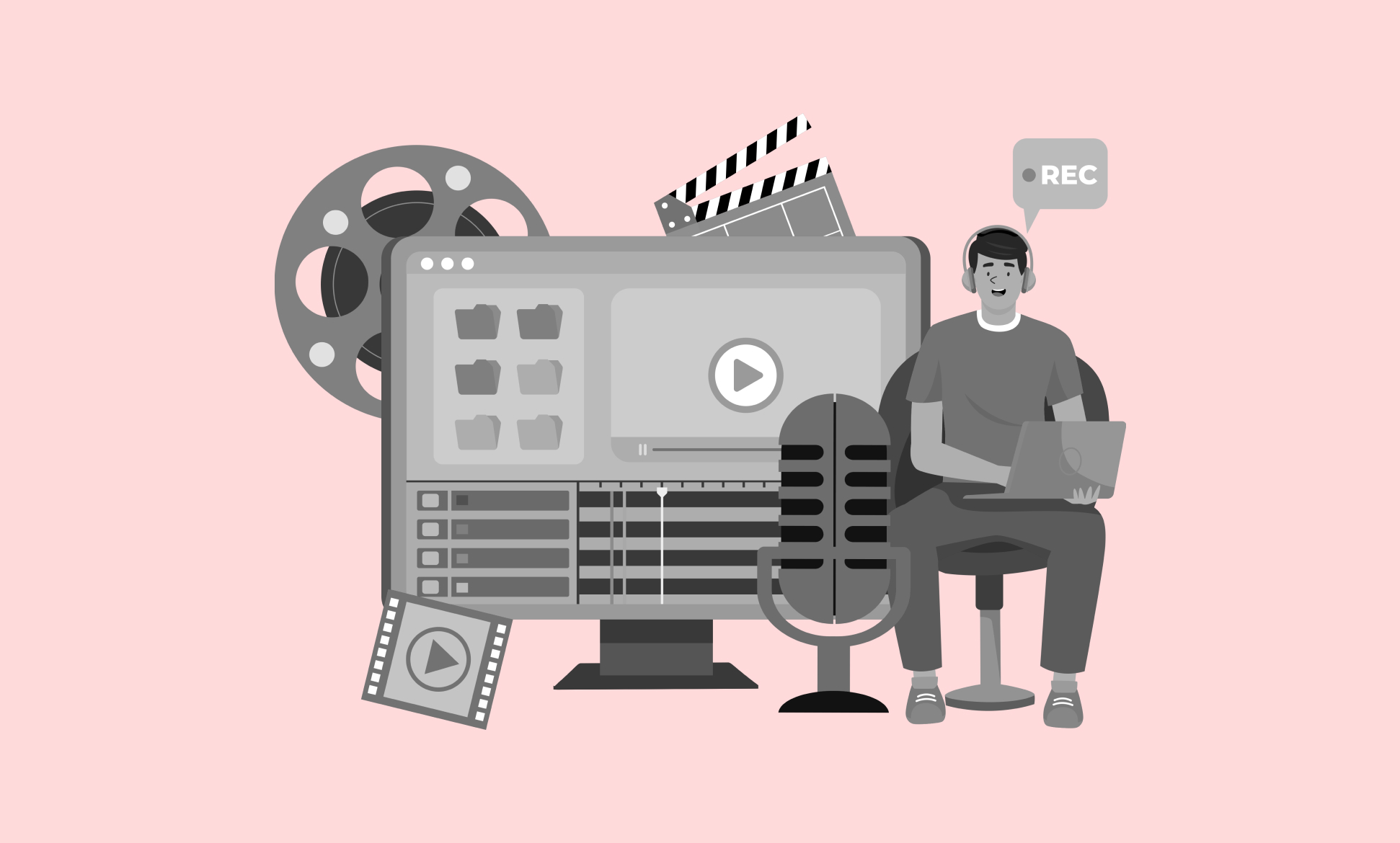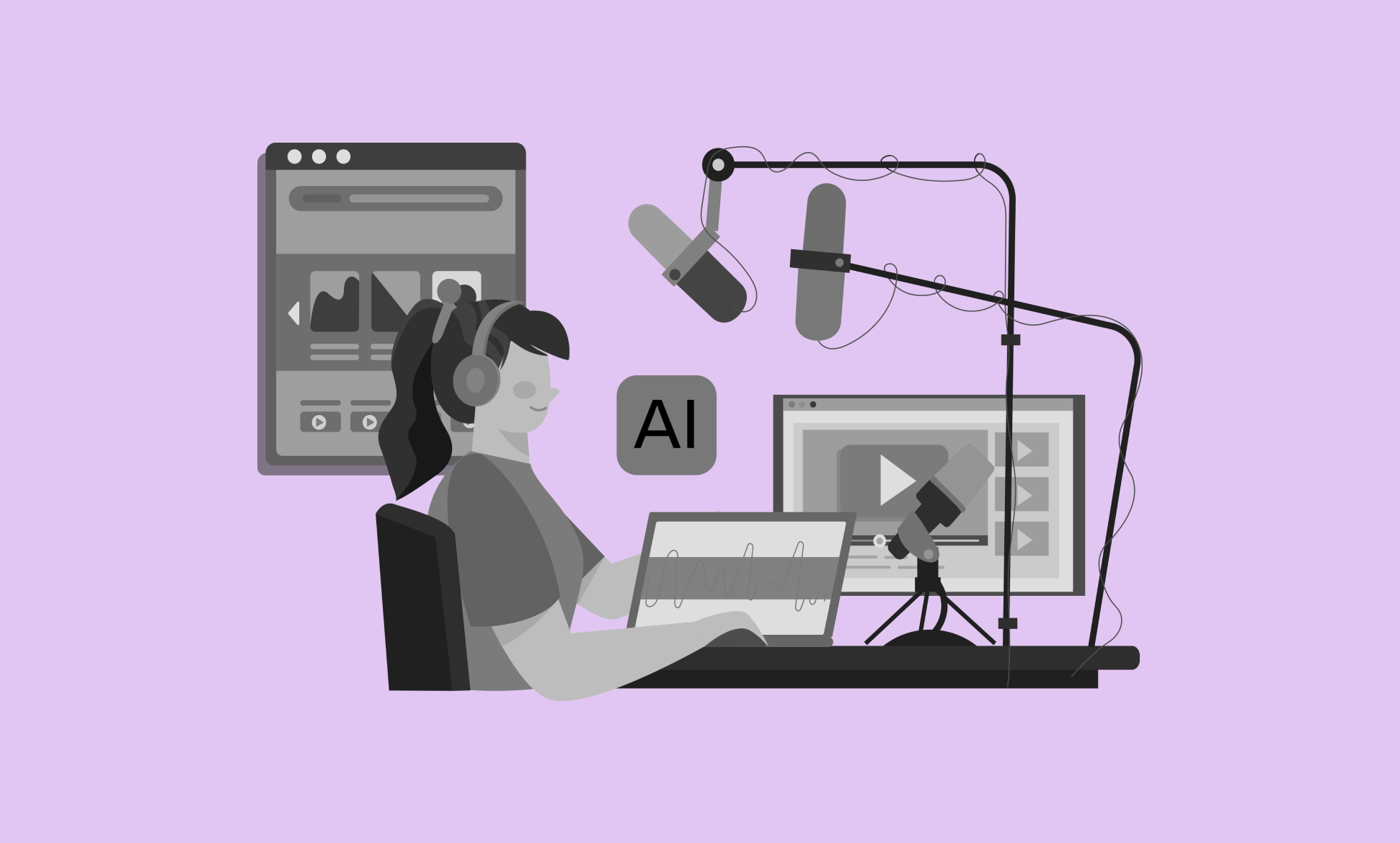It’s no surprise that 2023 was a tough year for podcasting. Large-scale cuts and layoffs accompanied by broader economic difficulties brought the need for improved measurement and analytics to the forefront for creators, networks, and advertisers alike.
However, discussions at Podcast Evolutions 2024 suggest that podcasting has started to bounce back with unparalleled optimism as we progress into 2024.
We can see this more notably in the latest findings from Edison Research. US podcast listening has hit an all-time high, with 47% of the US population 12+ having listened to a podcast this past month – that’s double the amount in 2017.
Before we jump back into the grind, the CoHost team wanted to share some of our other top takeaways from Podcast Evolutions to help podcasters and networks position themselves for the rest of the year.
Let’s get into it.
1. AI’s unavoidable
If AI wasn’t the topic of discussion, it was asked about and a part of the presentation – and that isn’t a bad thing. Coming away from Evolutions, we can’t avoid the fact that AI is securing its spot in audio and changing familiar processes.
In particular, the event shed light on the ethical considerations surrounding AI, especially in the wake of discussions spurred by last year's strikes in Hollywood. Despite initial concerns, it became evident that embracing AI leads to significant improvements in efficiency and productivity across the board (The Rise of AI and the Ethics of Editing).
Putting voice cloning and AI cohosts to the side, many creators and networks are keen to learn how to leverage AI in more subtle ways. In particular, how to use AI to automate, repurpose, and save time, while still keeping the human element behind their output (Storytelling and AI).
Acast's findings revealed that a staggering 81% of podcast listeners support the use of AI for generating real-time captions. This not only enhances accessibility for deaf communities but also opens up new avenues for engagement with a broader audience. Similarly, 82% of listeners expressed approval of AI's role in improving discoverability and episode transcriptions, enhancing searchability and content relevance.
By embracing AI responsibly, podcasters and networks can automate repetitive workflows, and reallocate their time to more high-value tasks, all while ensuring accessibility for all listeners.
2. Don’t sleep on podcast advertising opportunities
Despite podcasts representing 31% of media consumption, they receive only 9% of advertising dollars. Rather than viewing the gap as a setback, experts highlight it as a strategic opportunity for investment.
Compared to last year, 2024’s economic stabilization has brought about increased advertising and marketing investments across the board (Podcast Advertising: 2023 Review and 2024 Preview). Projections indicate a substantial uptick in spending, with reports forecasting a 7.7% rise to $1.76 trillion in global advertising and marketing spending this year.
This growth in advertising expenditure is translating into increased investments in podcast advertising, with new brands entering the space for the first time. Reports indicate that 2268 new brands advertised on podcasts for the first time in the fourth quarter of last year, underscoring the vitality and ongoing expansion of podcast advertising.
With the industry poised for continued growth and new brands on the scene, now is an opportune time for strategic investment and collaboration to capitalize on the expanding podcast advertising market.

3. Podcast audience isn’t the same as traffic
Our Founder and CEO, Fatima Zaidi, sat down with Dan Misener, the co-founder of Bumper, and Bryan Barletta, Partner at Sounds Profitable, to discuss audience building. An important takeaway from the Quill and CoHost Lunch and Learn was that building a podcast audience is not the same as generating traffic.
A common mistake pro-podcasters make is conflating audience and traffic. To recognize the difference, Dan suggests thinking about it this way: Anyone can buy or trick people into generating traffic (downloads). Building a loyal, growing podcast audience that keeps coming back over time is far more meaningful (and difficult).
While the temptation to focus on traffic over audience is justified because the easiest metrics to get are traffic metrics, experts like Zaidi, Misener, and Barletta are urging pro podcasters and networks to focus on engagement metrics over vanity metrics like downloads.
4. The downfall of downloads
Expanding on the takeaway above, to find out what's working and what's not, panelists at Podcast Evolutions are suggesting agencies, networks, and creators turn to engagement metrics like consumption rate, listen-through rate, and drop-off points (The 5 Metrics That Show What's Broken and What's Working With Your Podcast).
Metrics like download numbers and subscriber counts might initially seem impressive and indicative of success – and they can be (partially). However, these metrics often fail to provide a comprehensive understanding of your podcast's actual performance or impact.
This is largely because these metrics lack depth; they offer a superficial view of your podcast's reach but fall short when revealing crucial aspects like audience engagement, retention, or loyalty. While high download numbers might catch attention, they don't indicate whether listeners are genuinely engaged or if they continue to follow your content.
Instead of getting bogged down by your downloads, podcast analytics experts, like Fatima Zaidi, suggest shifting your focus to metrics that provide meaningful insights into audience behavior. Metrics like consumption rate, average listening time, or churn rate offer a deeper understanding of how your audience engages with your content.
5. Listener insights are necessary to monetize and grow your show
Another key takeaway from Podcast Evolutions is the importance of listener insights in driving revenue and growing your show. Understanding audience preferences and behaviors is crucial for effectively monetizing a podcast and attracting advertisers.
For example, there’s a significant shift among large brands towards audience-based buying rather than traditional show sponsorships. Brands are increasingly leveraging advanced audience targeting techniques, utilizing cutting-edge content analysis tools, like B2B Analytics and Audience Advanced Demographics, as well as integrating CRM tools for precise targeting. This move towards scalable and efficient advertising strategies reflects the changing dynamics of podcast advertising.
Another example is the critical role of real-time data in campaign optimization, which enables advertisers to make timely adjustments based on performance metrics and content suitability. This dynamic approach to podcast advertising allows for more effective targeting and ensures that advertising strategies remain responsive to audience engagement.
By understanding audience preferences, embracing advanced advertising strategies, and utilizing real-time data for campaign optimization, pro podcasters can drive growth and position themselves for success in an increasingly competitive market.
6. Monetization isn’t one-size-fits-all
Traditionally, there has been debate over whether podcasters should focus on host-read sponsorships or dynamically inserted ads, but the consensus at Podcast Evolutions was clear: it's not an "or" but an "and" scenario.
Podcasting offers a variety of monetization streams, ranging from host-read ads to dynamically inserted ads, event sponsorships, and even social media promotions. The industry experts highlighted that podcasters and advertisers should view the medium as the focal point of the $250 billion creator economy, exploring all available avenues for revenue.
This includes more unlikely revenue streams. For example, insights from Acast research revealed that listeners of smaller-sized podcasts are 90% more likely to embrace additional ads within the podcasts they listen to compared to listeners of larger shows. This underscores the potential for advertisers to achieve deeper engagement and better ROI by leveraging the unique strengths of niche podcasts.
Overall, this approach brings us back to the importance of podcasters understanding their audiences intimately. This knowledge enables them to identify the monetization approaches that resonate best with their listeners.
Another successful Podcast Evolutions in the books
That’s a wrap on Podcast Evolutions 2024!
As we reflect on the highlights and key takeaways from Podcast Movement Evolutions, one thing is clear: the future of podcasting is bright. From embracing diverse monetization strategies to harnessing the power of niche audiences, the industry continues to evolve and innovate.
Did we miss you at Podcast Evolutions? Reach out to the CoHost team.




.webp)






